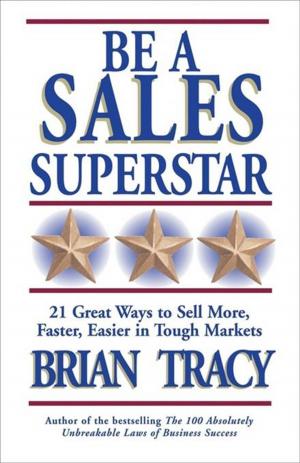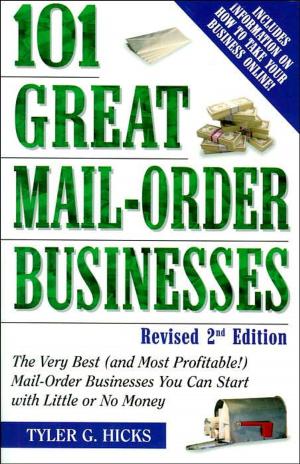| Author: | Michael D. Riley | ISBN: | 9780963537850 |
| Publisher: | Michael D. Riley | Publication: | June 10, 2013 |
| Imprint: | Smashwords Edition | Language: | English |
| Author: | Michael D. Riley |
| ISBN: | 9780963537850 |
| Publisher: | Michael D. Riley |
| Publication: | June 10, 2013 |
| Imprint: | Smashwords Edition |
| Language: | English |
Here's Good News for Governments: a More Attractive Alternative to Raising Tax Rates!
In recent years, headlines have announced new government funding crises almost daily. High levels of public spending and debt have created difficult challenges for lawmakers everywhere.
Conventional answers are exhausted. Raise taxes? Voters won’t buy it. Acquire more debt by issuing bonds? That road too has slowed to a crawl. Even speeding up governments’ printing presses seems to be “pushing on a string.” Deflation rather than inflation is the paradoxical result. Cut staff to cut spending? Reduce public services? Cut entitlement spending? Once again, the political prices are too high. Sell off public assets? “That’s out of the question.”
But there is an alternative. Governments can readily find companies which will happily volunteer to pay for the use of government assets. Think of it as a rental fee, a fee that governments can charge businesses which can increase their earnings by making temporary and contractually specified use of the kinds of access to the public that only publicly-owned properties can provide.
In 2000, a Huntington Beach, California man, Don Schulte, helped his community reap the rewards of this alternative by making a deal. His success produced millions of dollars in new revenue for the City, by methods so new they were featured on the NBC television network’s Nightly News, as well as in prominent coverage in the New York Times and Wall Street Journal. This newer way has come to be called “municipal marketing.” It simply calls for the disciplined pursuit of sponsorship deals across a variety of business categories.
To meet the immediate nationwide demand for similar deals which was produced by this publicity, Don and the author of this book joined forces to build the nation’s leading municipal marketing services agency. The firm, Public Enterprise Group (“PEG”), went on to demonstrate that its methods could be used by every kind of government entity, and could consistently raise up to two percent of the General Revenues needed to pay for government operations.
Subsequently, municipal marketing strategies and tactics have produced hundreds of millions of dollars in new government resources. The past decade has confirmed that a determined and innovative approach to forming government partnerships with businesses can produce a host of benefits for taxpayers. This book provides all of the templates and information that even voters might need to use in order to inspire such programs wherever open minds may be found.
Here's Good News for Governments: a More Attractive Alternative to Raising Tax Rates!
In recent years, headlines have announced new government funding crises almost daily. High levels of public spending and debt have created difficult challenges for lawmakers everywhere.
Conventional answers are exhausted. Raise taxes? Voters won’t buy it. Acquire more debt by issuing bonds? That road too has slowed to a crawl. Even speeding up governments’ printing presses seems to be “pushing on a string.” Deflation rather than inflation is the paradoxical result. Cut staff to cut spending? Reduce public services? Cut entitlement spending? Once again, the political prices are too high. Sell off public assets? “That’s out of the question.”
But there is an alternative. Governments can readily find companies which will happily volunteer to pay for the use of government assets. Think of it as a rental fee, a fee that governments can charge businesses which can increase their earnings by making temporary and contractually specified use of the kinds of access to the public that only publicly-owned properties can provide.
In 2000, a Huntington Beach, California man, Don Schulte, helped his community reap the rewards of this alternative by making a deal. His success produced millions of dollars in new revenue for the City, by methods so new they were featured on the NBC television network’s Nightly News, as well as in prominent coverage in the New York Times and Wall Street Journal. This newer way has come to be called “municipal marketing.” It simply calls for the disciplined pursuit of sponsorship deals across a variety of business categories.
To meet the immediate nationwide demand for similar deals which was produced by this publicity, Don and the author of this book joined forces to build the nation’s leading municipal marketing services agency. The firm, Public Enterprise Group (“PEG”), went on to demonstrate that its methods could be used by every kind of government entity, and could consistently raise up to two percent of the General Revenues needed to pay for government operations.
Subsequently, municipal marketing strategies and tactics have produced hundreds of millions of dollars in new government resources. The past decade has confirmed that a determined and innovative approach to forming government partnerships with businesses can produce a host of benefits for taxpayers. This book provides all of the templates and information that even voters might need to use in order to inspire such programs wherever open minds may be found.















